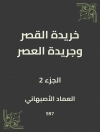Duncan Campbell Scott’s ‚Labor and the Angel‘ is a profound exploration of the intersection between human labor and the ethereal aspects of existence, woven through poetry that resonates with emotional depth and philosophical inquiry. The narrative reflects modernist sensibilities, engaging with themes of identity, mortality, and the search for meaning in a rapidly industrializing world. Scott employs vivid imagery and resonant symbolism, creating a work that simultaneously acknowledges the materialist concerns of the time while also reaching into the transcendental, inviting readers to ponder the dualities of the human condition. Scott, a prominent figure in Canadian literature and a notable poet, drew upon his own experiences in both the literary and bureaucratic realms, infusing his work with insights garnered from his roles in the civil service and as a literary critic. His background, marked by an appreciation for both the cultural complexities of Canada and the nuances of human labor, profoundly influenced his writing, resulting in a contemplative text that challenges readers to consider the value of labor in the spiritual dimension of life. ‚Labor and the Angel‘ is a must-read for anyone interested in the intricate interplay between work, spirituality, and the human experience. It speaks to those seeking not only to understand the social constructs of their time but also to reflect on their own existence within these frameworks. Scott’s eloquent prose invites readers to engage deeply with the material, making it an essential addition to any literary collection.
Über den Autor
Duncan Campbell Scott (1862-1947) was a Canadian poet, prose writer, and civil servant. His literary work is often characterized by its engagement with the Canadian landscape and its cultural milieu. Born in Ottawa, Ontario, Scott was a member of the late 19th and early 20th century Canadian literary movement known as Confederation Poets, which included contemporaries like Charles G.D. Roberts, Bliss Carman, and Archibald Lampman, with whom Scott shared a close friendship and a mutual influence in their work. Scott’s poetry integrates themes of nature, the passage of time, and sometimes reflects the complex relationship between European settlers and Indigenous peoples. His collection ‚Labor and the Angel‘ contains a mix of lyrical poetry and narrative verses that encapsulate his meditations on philosophical and spiritual concerns. With a career that spanned the transition from Victorian to modernist literary forms, Scott was adept at employing both traditional metre and free verse. His work often evoked a deep sense of melancholy and introspection, characteristics that have cemented his reputation as a serious and profound voice in Canadian literature. Despite these accomplishments, Scott’s legacy is controversial due to his role in the Canadian government’s assimilation policies towards Indigenous peoples. As a senior official in the Department of Indian Affairs, Scott was instrumental in the administration of the Indian residential school system, which has marred his reputation in the light of current perspectives on colonialism and Indigenous rights.












